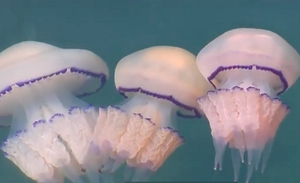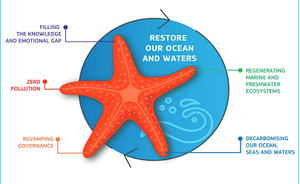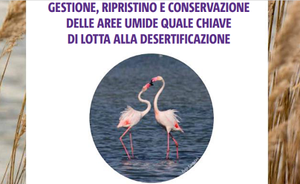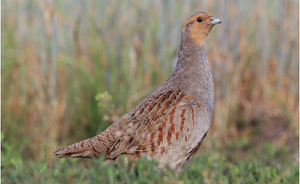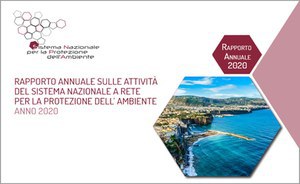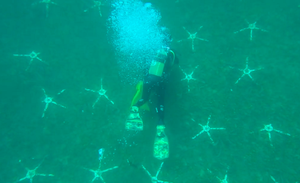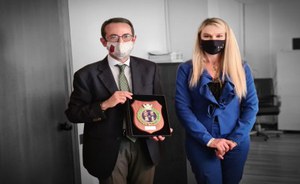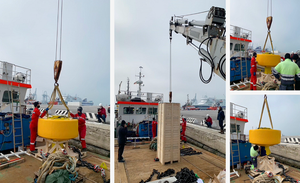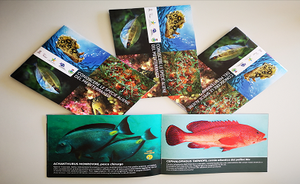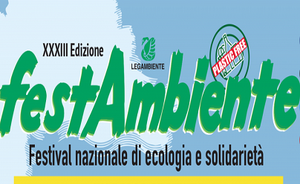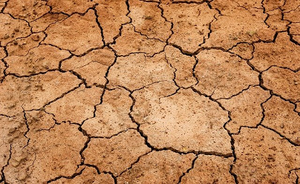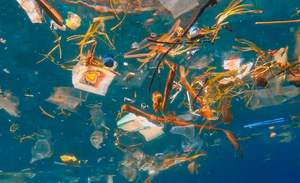August
"The sea you don't expect", "What happens over there?"
Satellite monitoring of jellyfish Last 19 July started the ISPRA's dissemination campaign to tell about the specific activities developed by its researchers, in compliance with the shared programs in Europe, both through observation and monitoring of marine environments, and in the field of laboratory research. The seventh initiative is dedicated to satellite monitoring of jellyfish The reasons for these significant presences are many, among the main ones: intensive fishing, which removes predators from them and the increase in temperature which facilitates the development of new species, such as the tropical one, introduced accidentally into the Mediterranean. To keep the problem under observation, it is useful to combine the monitoring campaigns at sea with satellite control capable of predicting the movement of jellyfish in certain geographical areas. ISPRA is committed to developing a method for satellite identification of schools of jellyfish offshore in order to develop a defense system for the areas closest to the coast.
OGS: bulletin of Geophysics and Oceanography
Published last number of the Bulletin of Geophysics and Oceanography of the OGS (National Institute of Oceanography and Applied Geophysics), international magazine dedicated to the Science of Earth, that in this volume focus on: "The Starfish Mission: an Italian perspective". Included in the volume a contribution of the ISPRA President Stefano Laporta on: "Coasts, inland waters and tourism: three aspects, same sustainability challenges".
Wetland management, restoration and conservation as a key to fighting desertification
Sep 11, 2021
to
Sep 12, 2021
— Cagliari,
The main topic of the conference will be the role of wetlands as a key to the fight against desertification and the geographical and geomorphological modification of previously fertile areas
Welcome back Perdix perdix italica!
In the Zone Special Protection of Valle del Mezzano (FE), the reintroduction of individuals of Italian gray partridge has begun, until now considered extinct in the wild.
Published the annual report on the SNPA activities year 2020
The SNPA report 2020 was sent to the President of the Council of Ministers Mario Draghi, to the Parliament and to the President of the State-Regions Conference Massimiliano Fedriga. It is an annual fulfillment, which accounts for all the activities carried out by the System. This edition is of particular importance as it relates to the year in which the pandemic began and the country experienced a period of lockdown.
"The sea you don't expect", "What happens over there?"
The importance of the reforestation of the Posidonia meadows. Last 19 July started the ISPRA's dissemination campaign to tell about the specific activities developed by its researchers, in compliance with the shared programs in Europe, both through observation and monitoring of marine environments, and in the field of laboratory research. The fifth initiatives is dedicated to the importance of the reforestation of the Posidonia meadows. When carrying out marine-coastal works such as a port or a gas pipeline it is possible that the Posidonia oceanica meadows are damaged. In addition to habitat loss, other spillovers can be created on the marine environment, resulting in the loss of many of the essential services that the prairie provides, such as increasing marine biodiversity, providing nutrition and shelter for many species, including many of fish caught by our fleets, trap carbon by removing it from the atmosphere, defend beaches from erosion and increase tourism in coastal areas. But there is the possibility of recovering this habitat with the reforestation of the Posidonia meadows. The European Project LIFE SEPOSSO , coordinated by ISPRA, goes in this directtion. For further information you watch the Life project Posidonia oceanica, take care of it.
Meeting between ISPRA and Ministry of Defence
The president of ISPRA Stefano Laporta met today the Undersecretary of Defense Senator Stefania Pucciarelli to promote common actions for the protection of the environment. The possible agreement, to be stipulated with the Ministry of Defense, represents a continuity of an important series of activities already concluded with the Armed Forces, such as the study and assessment of the needs to remove the residues of training activities and the coordination of restoration operations. and environmental remediation.
"The sea you don't expect", "What happens over there?"
ISPRA's National Wave Network, data available in real time Last 19 July started the ISPRA's dissemination campaign to tell about the specific activities developed by its researchers, in compliance with the shared programs in Europe, both through observation and monitoring of marine environments, and in the field of laboratory research. The sixth initiative is dedicated to ISPRA's National Wawe Netwrok All shipbuilding and navigation activities, maritime works, from ports to coastal protection works, offshore installations and all human activities and infrastructures that reside on the coastal strip require knowledge of the physical state of the sea of the wave motion. The accelerometric buoys that make up the national network managed by ISPRA represent an important source of meteorological data, of height and direction of the wave in real time and are accessible through the websites: www.mareografico.it as well as on the web portal ISPRA.
The virtual photo exhibition of INDICIT I and II is now online!
In the frame of INDICIT II project was realized exhibition photo virtual developed by ISPRA to allow also during the pandemic to be able to disseminate the activities and results of the two projects financed by DG Environment. The photo exhibition highlights the impact of plastic pollution in marine animals and the activities of researchers
Online ISPRA Report on biodiversity in Italy
Marine and terrestrial species and habitats still at risk. Contrasting measures needed for 35% of the most dangerous exotic species. Critical situation for the species and habitats that populate our country: although protected for decades, 54% of the flora and 53% of the terrestrial fauna, 22% of marine species and 89% are in an unfavorable state of conservation. of terrestrial habitats, while marine habitats show favorable status in 63% of cases and unknown in the remaining 37%.
Alien species of the Mediterranean sea: be aware of them
ISPRA and the Ventotene and S. Stefano Islands Marine Protected Area have launched a pilot activity for the monitoring of marine alien species. In order to provide support to operators and users of the sea for the recognition of the main alien species potentially observable and fishable in our seas, including some dangerous for human health, an informative brochure has been created to recognize and report them.
Climate crisis and ecological transition: a shared strategy for the re-evolution of the Italian system
Aug 18, 2021 from 07:30 PM to 08:30 PM
— Rispescia (GR),
On August 18, as part of FestAmbiente, the national festival of ecology and solidarity, the meeting "Climate crisis and ecological transition: a shared strategy for the re-evolution of the Italian system" will be held, which will be attended by the director general of ISPRA, Alessandro Bratti.
Human activities are changing the Earth's climate in an "unequivocal" way
According to the first volume of the sixth assessment report of the Intergovernmental Panel on Climate Change, entitled "The Physical Science Basis of Climate Change", published on 9 August, human activities are changing the Earth's climate in an "unequivocal" way and "Unprecedented" in hundreds of thousands of years.
"The sea you don't expect", "What happens over there?"
The invasion of plastic in the sea Last 19 July started the ISPRA's dissemination campaign to tell about thespecific activities developed by its researchers, in compliance with the shared programs in Europe, both through observation and monitoring of marine environments, and in the field of laboratory research. The eighth initiative is dedicated to the invasion of plastic in the sea 90% of the plastic in the sea comes from just 10 streams that cross mainly Asia and Africa. The presence of waste in the sea constitutes an enormous threat to the marine ecosystem, in recent years the awareness of citizens on this serious problem has grown. To prevent degradation of the marine ecosystem, each country in the Union is called upon to develop its own strategy. In Italy, this strategy is coordinated by the Ministry of Ecological Transition (MITE), supported by the National Environmental Protection System (SNPA), made up of ISPRA and the ARPAs, with the involvement of central administrations, regions, local authorities, universities. and other Research Bodies.

